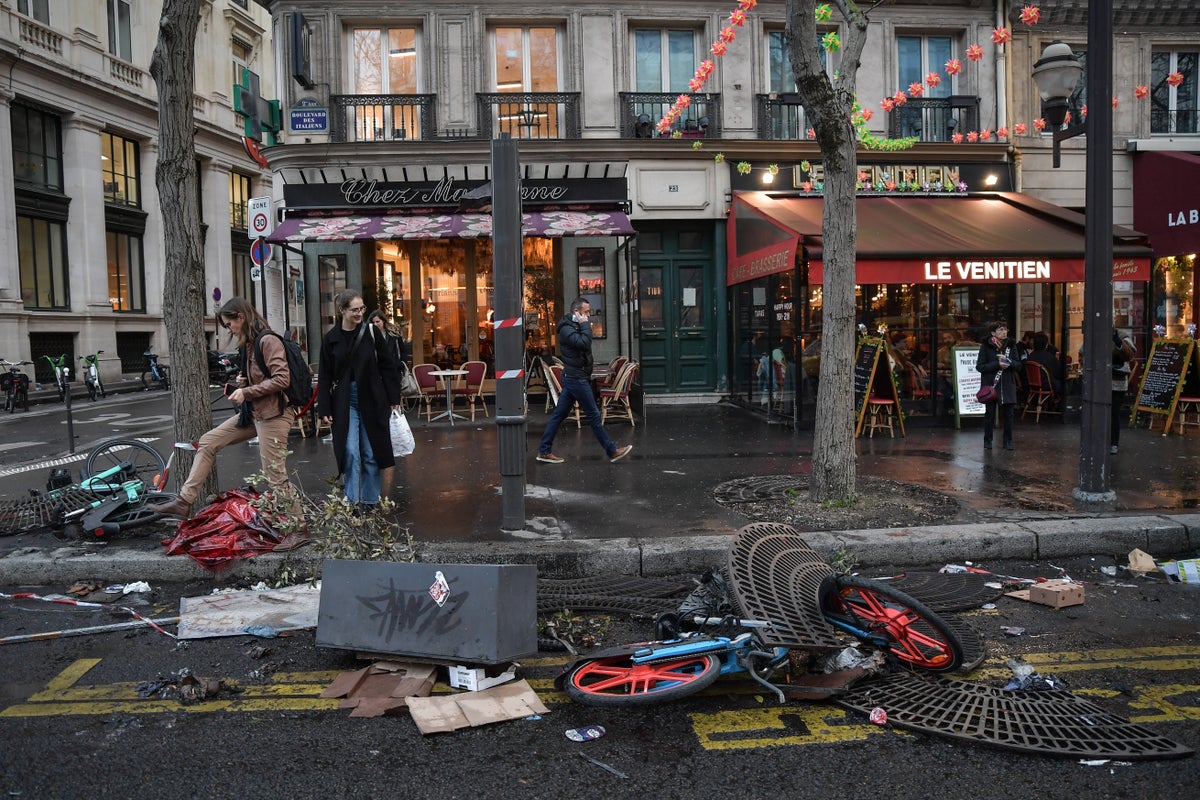
A former national security adviser has said a planned state banquet for King Charles III at the Palace of Versailles could have had “echoes” of the French revolution if it had gone ahead.
Charles and Camilla were due to begin the first state visit of the King’s reign on Sunday but violent nationwide demonstrations over president Emmanuel Macron’s pension reforms has meant the trip has been cancelled.
Lord Ricketts, who was the UK’s ambassador to France during the Queen’s final state visit to the country in 2014, told BBC Radio 4’s Today programme said: “I think when the state visit was planned, it was going to be the culmination of a period of real improvement in UK-French relations, marked by the summit between Rishi Sunak and Macron a couple of weeks ago.
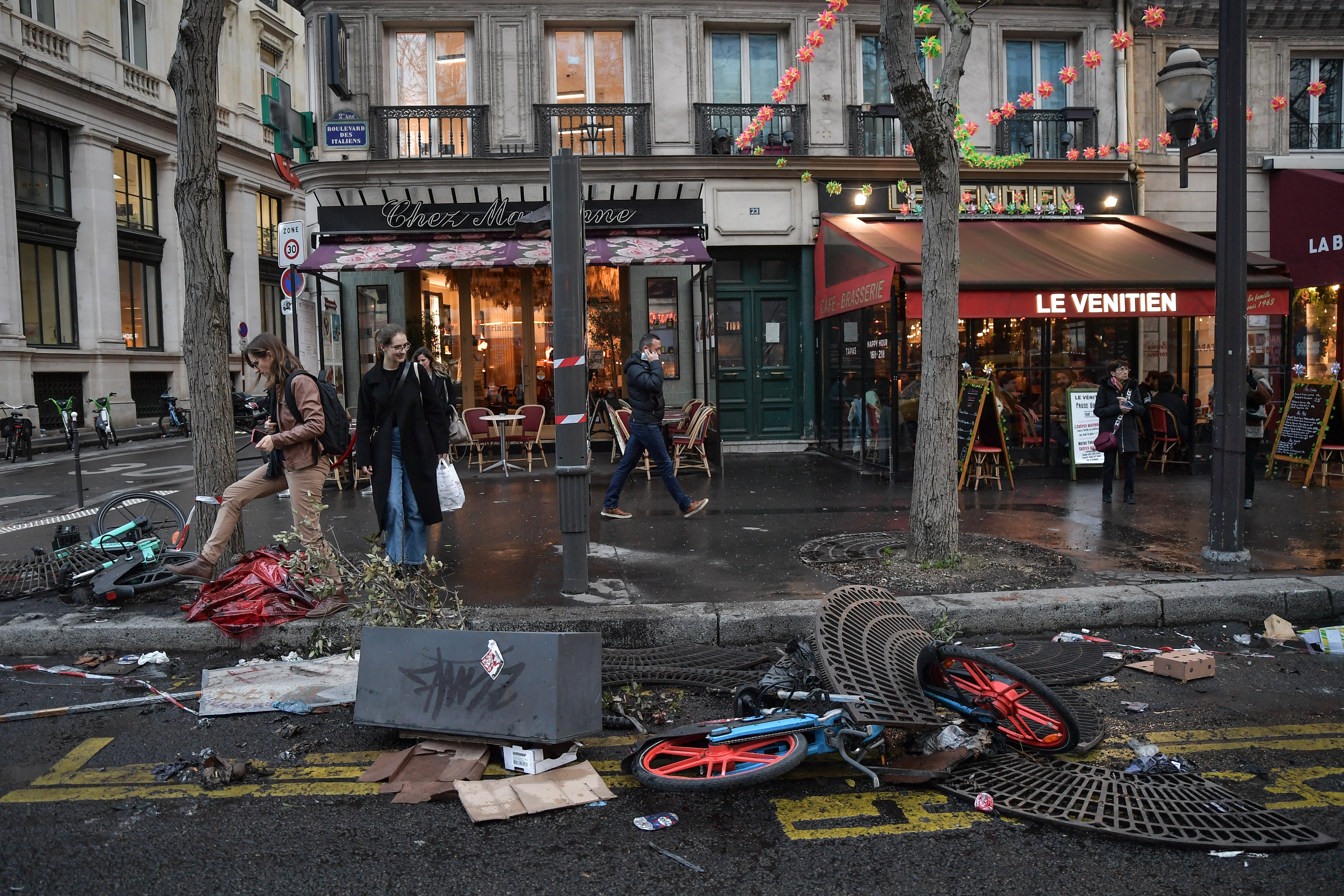
“The fact that there are now these violent protests which seem to be growing made, in particular, the idea of a banquet in Versailles a particularly bad idea.
“That had all kinds of echoes from the past going back to the revolution.
“Bordeaux looked to be difficult as well for the visit the King was planning to make,” he continued. “So, as it turned out, the circumstances were not right, in which case it is right to postpone.”
Lord Ricketts added that the King’s cancelled visit to France could have been “overshadowed” by “potentially awkward incidents” if it had gone ahead while violent protests raged at Mr Macron’s proposal to raise the retirement age from 62 to 64.
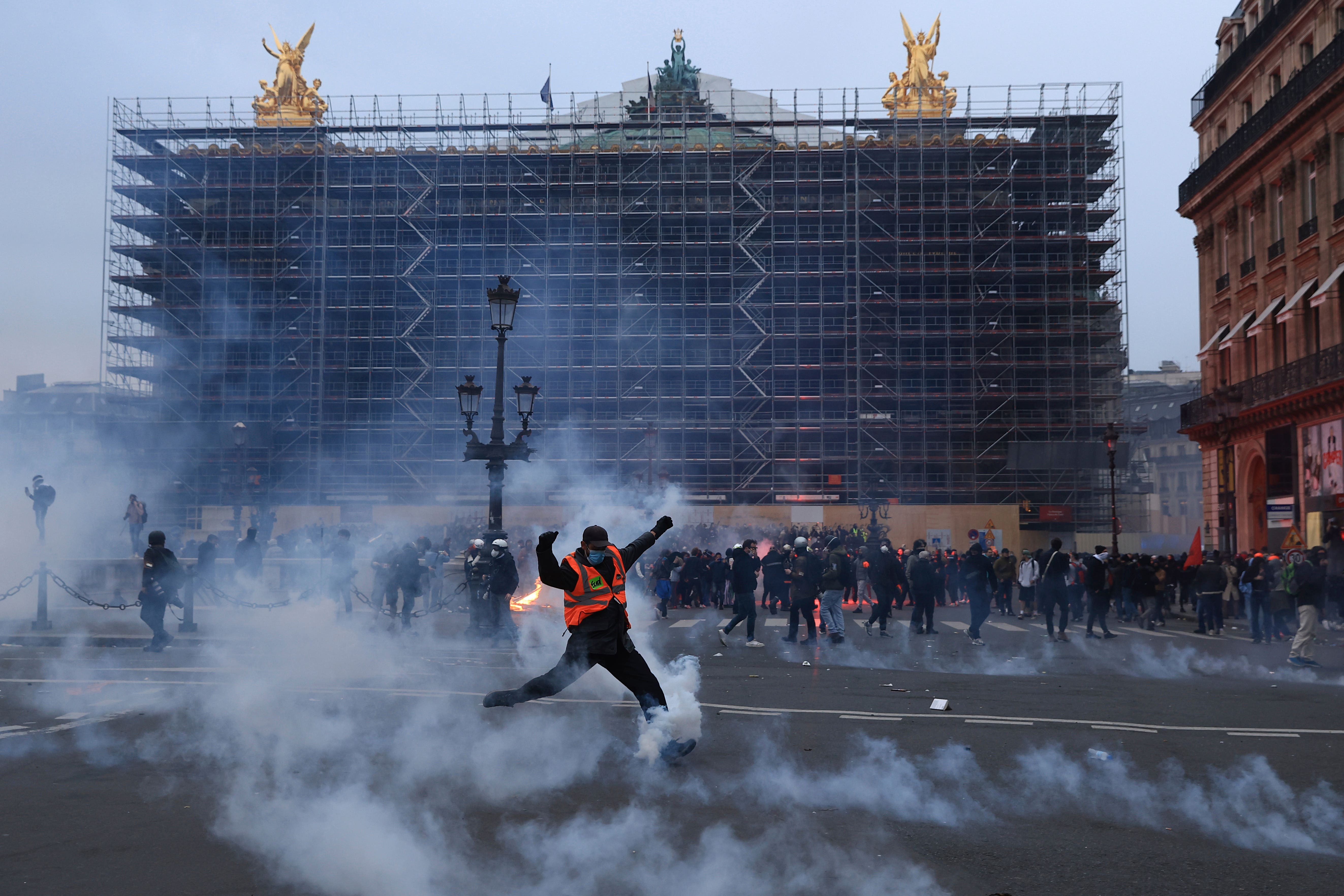
He said: “I think both sides will have been watching the deteriorating situation in France pretty closely and I suspect that up to the last moment the French wanted it to go ahead.
“But it was those violent demonstrations on Thursday, I think, that probably tipped the balance, at which point the president called – and it is right that the president should take the initiative, it was his invitation for the King to come – but I’m sure Buckingham Palace was very happy to accept his advice and to agree jointly that the visit should be postponed.
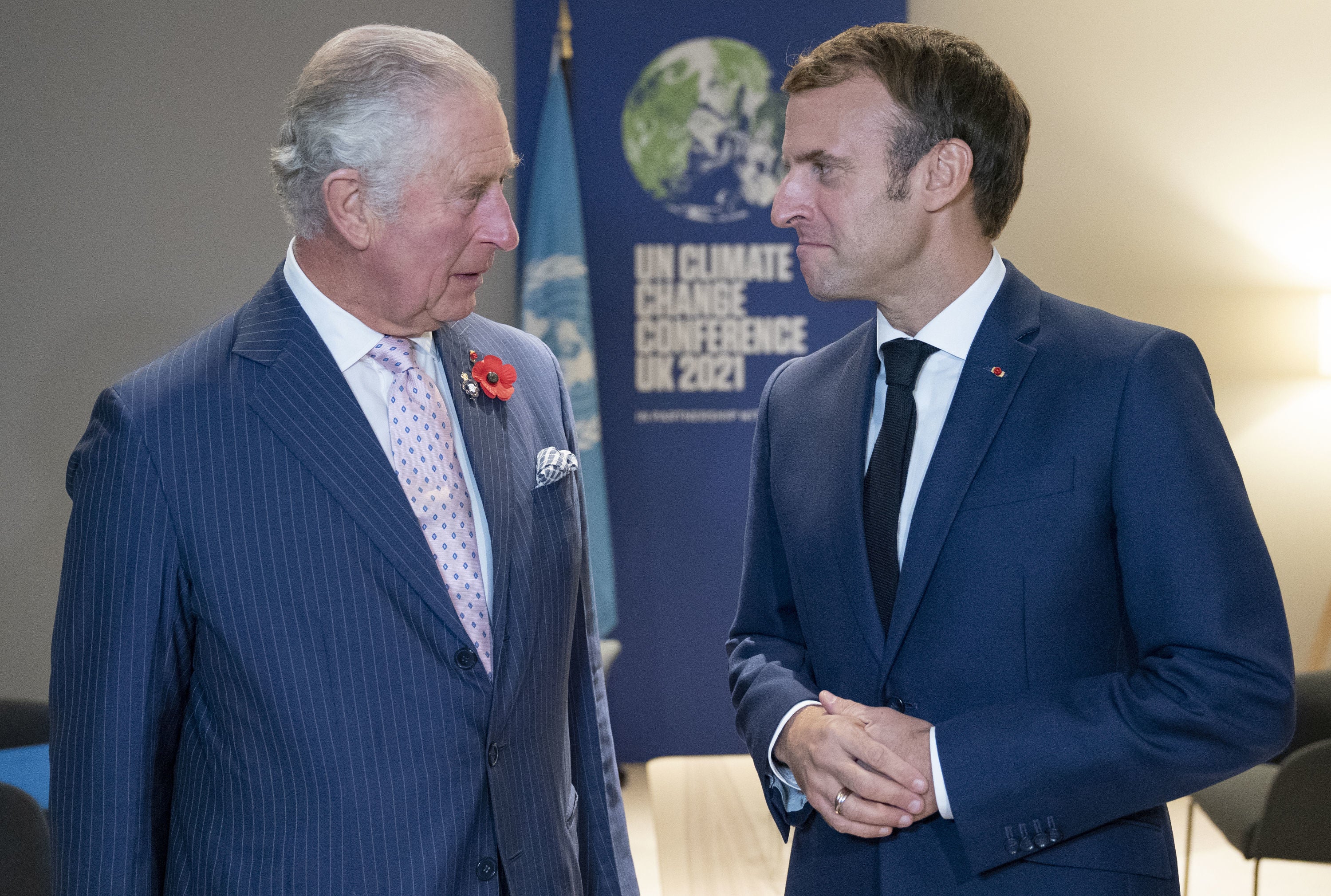
“Much better that it should be postponed to a quieter time than it be overshadowed by a massive security situation and potentially awkward incidents.”
The violence erupted out of rallies organised by unions in opposition to Mr Macron’s divisive new pension reform bill, which includes a provision to raise the legal age of retirement from 62 to 64.
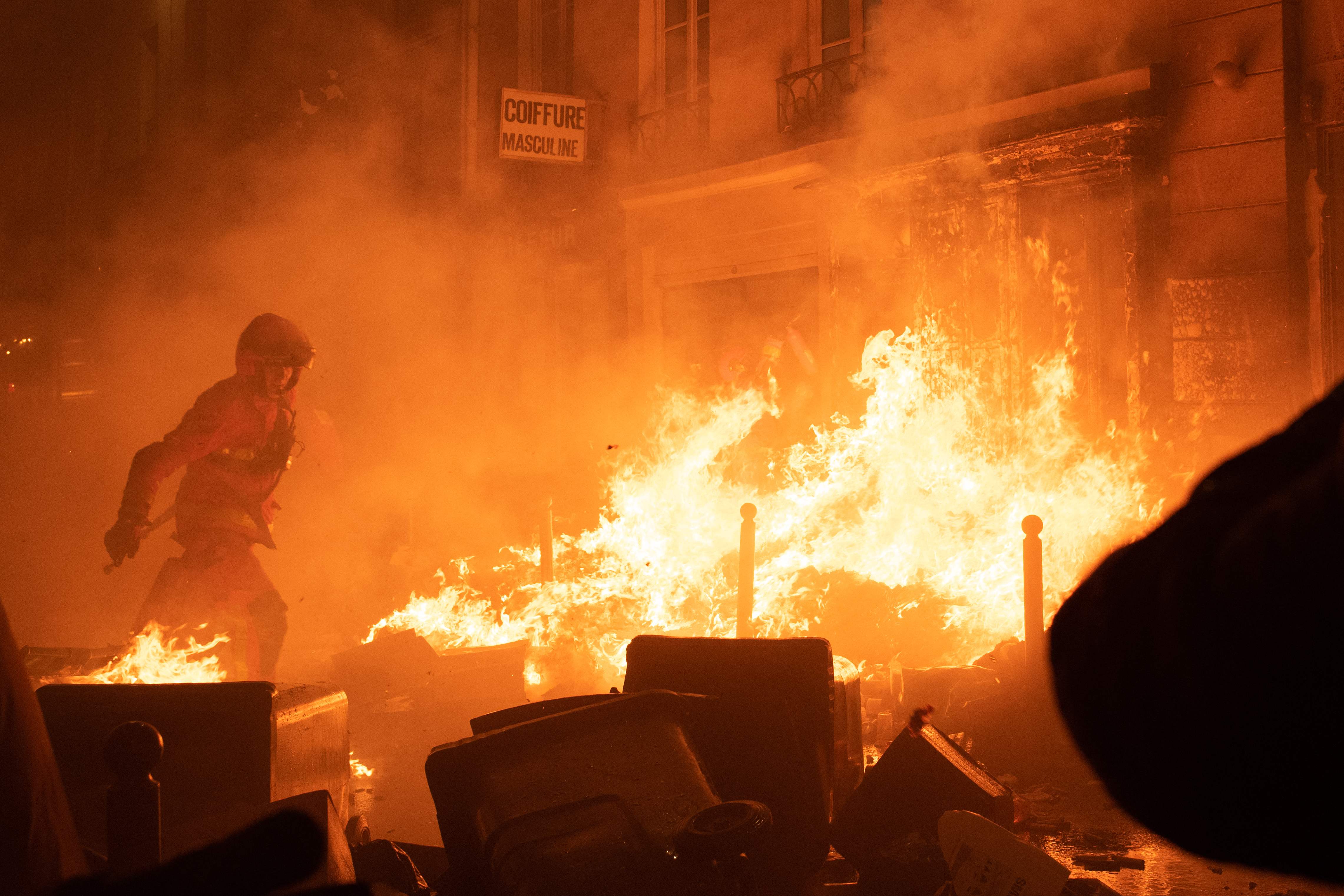
While many already opposed the bill, the president has inspired further democratic outrage by forcing it through parliament without a vote in the National Assembly, a move that appeared to many to stretch his executive power to its outer limit.
More than a million people are believed to have taken part in Thursday’s strikes, the biggest day of demonstrations so far, with 119,000 people marching through Paris as videos of chaos and looting flooded social media, including footage of both riot police and activists being led away from the fray injured.







